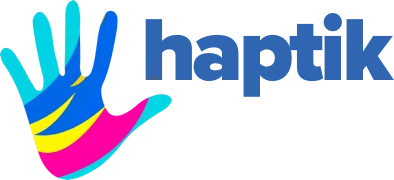With two billion monthly active users, WhatsApp stands head and shoulders above as the most popular messaging app. It isn’t just a simple messaging app either: users complete transactions, and interact with businesses for everything from personalized shopping experiences to customer support. Ultimately, WhatsApp offers a rich suite of features and tools that facilitate seamless communication for personal and business needs.
Related Read: The Ultimate Guide to WhatsApp Marketing
For decades, short messaging service’s (SMS) simplicity, reliability, and speed of communication, irrespective of location or internet connectivity, had made it the messaging channel of choice for customers and businesses. However, as technology became more advanced and user expectations evolved, the limitations of SMS started surfacing. The limit of 160 characters, security concerns, and lack of engagement restricted its effectiveness as a platform.
Here’s a snapshot of SMS vs WhatsApp:
|
|
Short Message Service (SMS) |
|
|
Character length |
4096 characters |
160 characters |
|
Message delivery |
Requires internet connection |
Only requires a service plan |
|
Business features |
Rich set of features including quick replies, chatbots, and interactive buttons, and authentication templates |
Businesses can attach files, forms, and interactive surveys for user engagement, but native authentication templates are unavailable |
|
Rich media support |
Supports images, videos, documents, and voice messages |
Supports text and URLs |
|
User experience |
Interactive and engaging |
Simple and straightforward |
|
Integrations |
Seamless integration with CRM systems, eCommerce platforms, payment gateways, and customer service tools |
Limited, and often requires third-party services |
|
Pricing |
Typically volume-based |
WhatsApp offers authentication templates that blend robust security with high deliverability and low latency for seamless access to websites and apps. WhatsApp currently offers copy code, one-tap, and zero-tap authentication templates with customizable message validity periods to streamline user experience for quick and efficient authentication processes.
Copy code authentication template allows businesses to send OTPs via WhatsApp that users must manually copy-paste into the app. This method offers flexibility but requires additional user interaction. One-tap autofill template streamlines the process by providing a button that automatically fills in the code within the user's app. Zero-tap template directly enters the code into the user's app without requiring any user action. This method is currently only supported on Android devices.
SMS does not support authentication templates in the way that WhatsApp does. While SMS is also used for sending one-time passcodes (OTPs) and verification codes, it lacks the built-in support for structured, customizable templates. SMS messages are typically more basic and standardized in comparison to the more tailored and secure templates available on WhatsApp.
Meta’s revised pricing for WhatsApp Utility messages (INR 0.11 paise) undercuts the charges levied for an SMS (INR 0.12-0.15 paise) sent by a business to a customer. In fact, even the new authentication-international rates for OTPs cost enterprises half of what they are charged for SMS. WhatsApp has thus emerged as a more cost-effective communication channel. The new pricing structure, coupled with WhatsApp’s widespread adoption and user-friendly interface, empowers businesses to deliver timely and secure authentication messages to customers more efficiently - without burning a hole in their pockets.
WhatsApp allows businesses to connect with audiences at scale by offering increased engagement, brand discoverability, and the security of end-to-end encryption. Businesses can also achieve verification status for added credibility by displaying a verified badge next to their profile name. It assures customers that they are interacting with an authentic business, further boosting confidence and engagement.
What about users? As per a recent survey, 68% of users mention WhatsApp as the easiest way to connect with a business, reflecting the channel’s popularity.
WhatsApp continues to evolve as a channel with the introduction of powerful business features. Flows is one such feature that helped one of our partners to scale lead generation by 400%, while increasing its repeat customers by 3x. Click-To-WhatsApp-Ads, Conversions API, and Marketing Messages Optimization, are other powerful tools that allow businesses to maximize performance and unlock higher ROI from their marketing and advertising efforts.
Another significant advantage of WhatsApp for business is the option of integrating GenAI capabilities on the platform. Integration of GenAI empowers businesses to enhance customer experiences through personalized and context-aware conversations. By leveraging GenAI, businesses can craft highly tailored interactions that resonate with individual customer preferences and behaviors. GenAI enables businesses to automate follow-ups and suggest repeat purchases based on previous interactions and buying patterns, fostering customer loyalty and encouraging repeat business.
Closing Thoughts
WhatsApp’s comprehensive suite of tools, features, and end-to-end encryption make it the ultimate channel for customer engagement, authentication, and business performance. Its ability to deliver rich media, interactive messages, and customizable authentication templates, combined with its seamless integration with GenAI, ensures a highly personalized user experience. Its cost-effective pricing and integration with business systems further enhance its appeal as a business channel.







